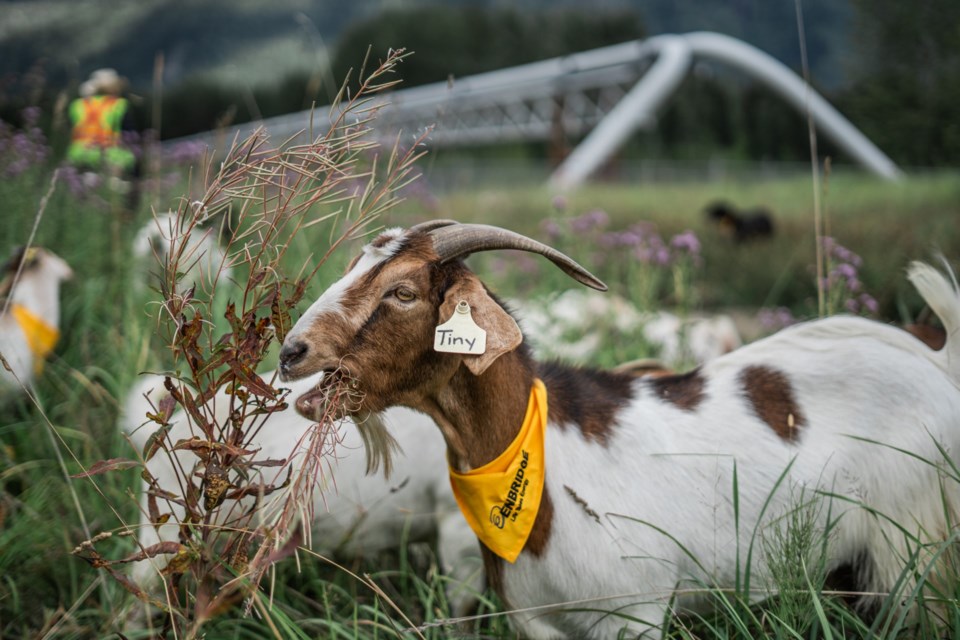Enbridge is employing goats to control invasive plant species along its pipeline system in B.C.
The Goat Grazing Project saw about 30 goats penned in a parcel of land located in the Pine Pass, north of McLeod Lake, about 240 km north of Prince George.
The goats were given yellow bandanas and tasked with grazing the area for a week in early August.
The company says clearing invasive plants is a critical component of its commitment to integrated vegetation management along the pipeline right-of-way.
The right-of-way needs to have a herb-dominated ecosystem, meaning having only smaller plants like grasses and legumes grow in the area. Having shrubs and trees on the right-of-way reduces Enbridge’s ability to access sites for maintenance on its pipeline infrastructure.
The goats were brought in as a biological method to control vegetation rather than chemical application of herbicides or mechanical cutting of shrubs and trees.
“When these goats are penned in an area, they will overgraze on shrubs. The best-case scenario is the goats eat everything. They eat the leaves, they eat the little branches, and they graze it right down to the ground,” said Dan Tisseur, senior environment advisor for operations and maintenance for Enbridge.
Goats or other grazers have already been used as an effective and sustainable way to control vegetation. But more research needs to be done to assess the efficacy of the approach.
Hence Enbridge’s Goat Grazing Project will run for years, with the goats being brought back to the study location every year to repeat the treatment and properly observe the effectiveness of the grazing method.
“This is going to be a multi-year project to assess the efficacy over time. So we’re actually going to bring these goats back to the same location to repeat these treatments to see if over time we’re witnessing a reduction in the shrub biomass and invasive plants on site,” added Tisseur.



